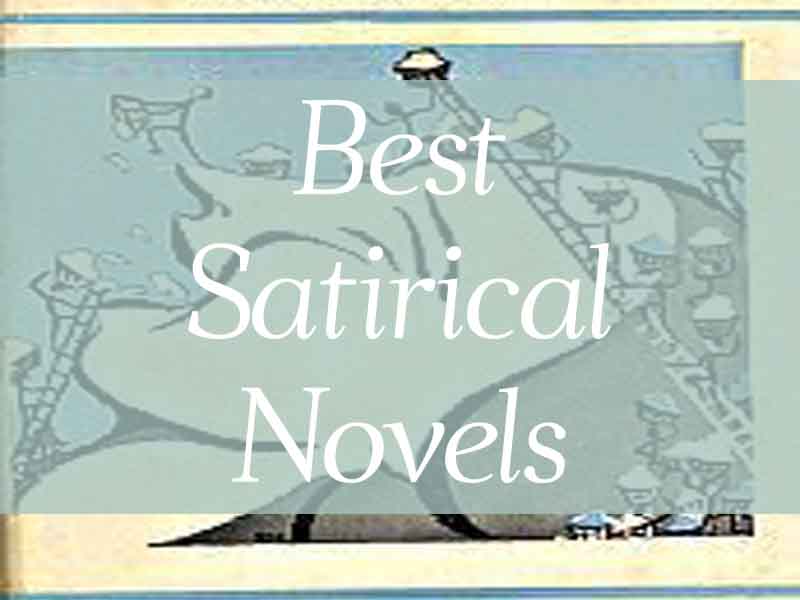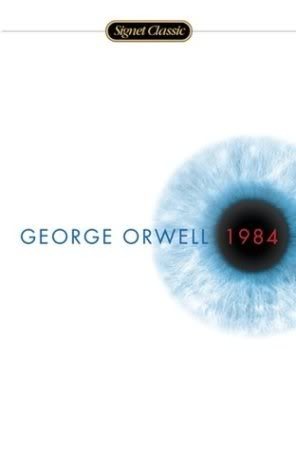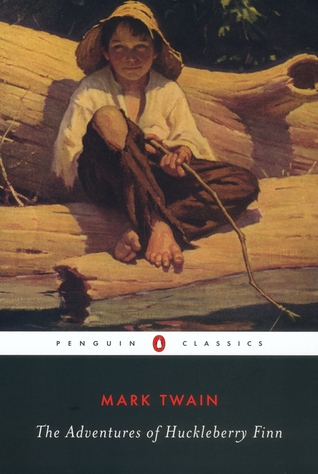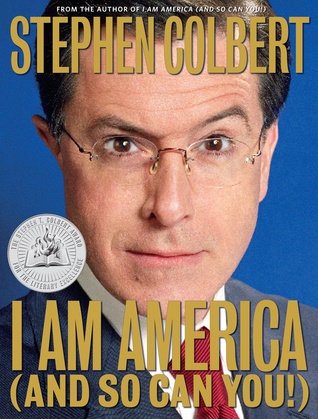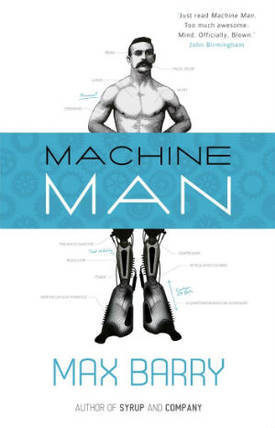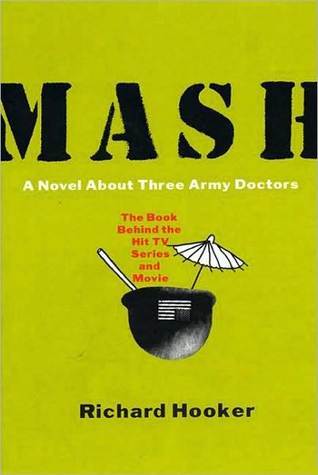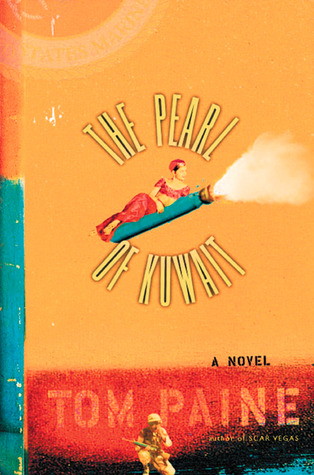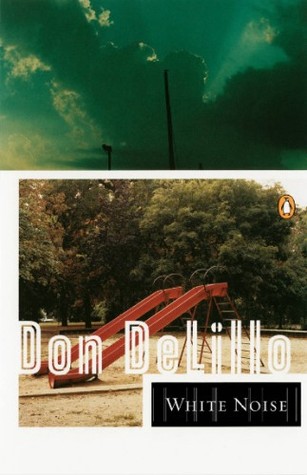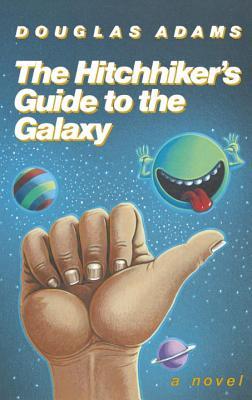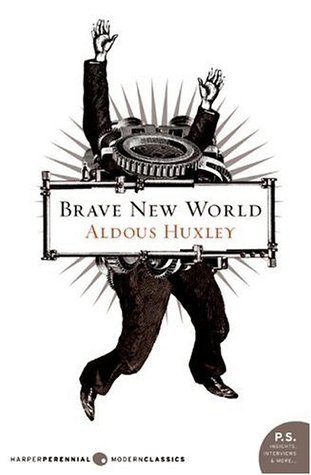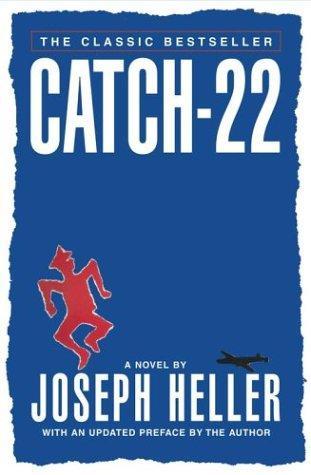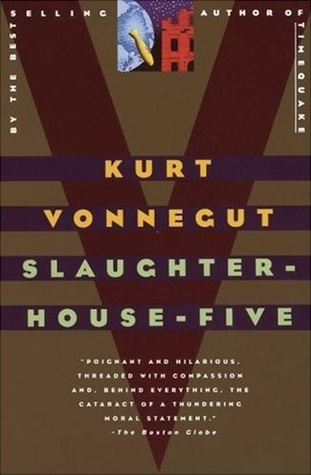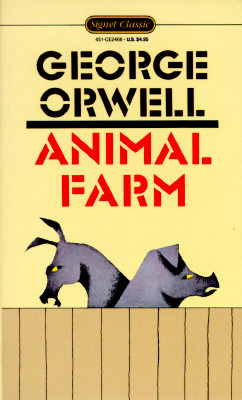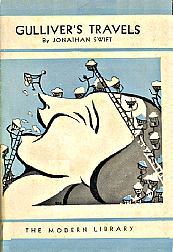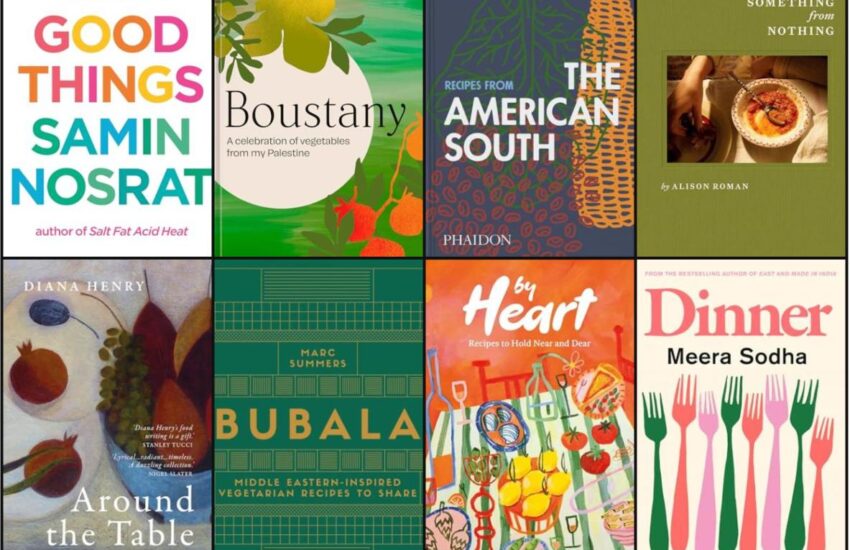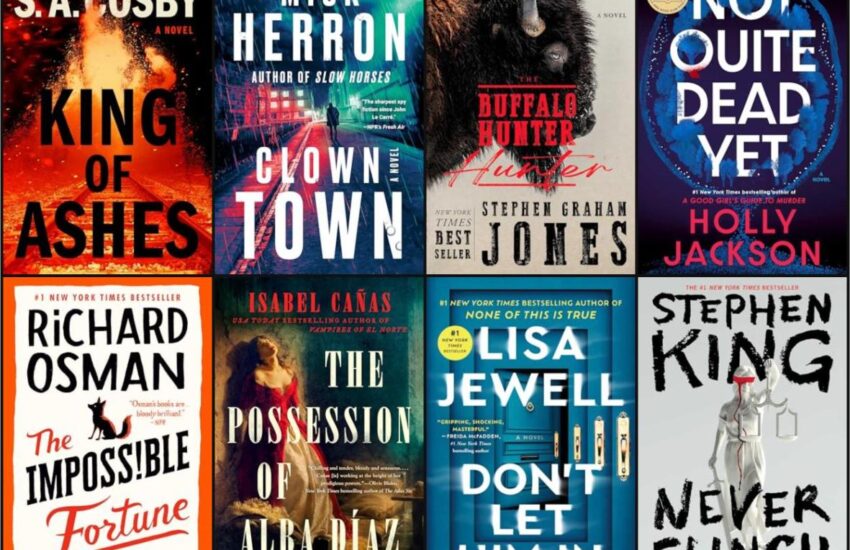The Best Satire Books
“What are the best Satire books of all-time?” We looked at 15 sources and aggregated 96 different books in an attempt to answer that very question.
The best satire books of all-time we found after aggregating all of the lists together leaned much more on the historical side of the genre than we would have expected. The list is much more Johnathan Swift and his proposal of baby meals than Onion and Daily Show compilations.
Below you will find the top 14 satirical books of all-time with images, links, and summaries. At the bottom of the page the remaining 82 books, all appearing on a single list each, as well as the sources we used are also listed.
Also make sure to check out our sister film website for the Best Satire Movies Of All-Time!
Happy Scrolling!
The Top 14 Satirical Books
14 .) 1984 by George Orwell
- Five Books
- Duck Bunny
Written in 1948,1984 was George Orwell’s chilling prophecy about the future. And while 1984 has come and gone, Orwell’s narrative is timelier than ever. 1984 presents a startling and haunting vision of the world, so powerful that it is completely convincing from start to finish. No one can deny the power of this novel, its hold on the imaginations of multiple generations of readers, or the resiliency of its admonitions—a legacy that seems only to grow with the passage of time.
13 .) The Adventures of Huckleberry Finn by Mark Twain
- Literary Devices
- Global Top 10s
The novel’s preeminence derives from its wonderfully imaginative re-creation of boyhood adventures along the Mississippi River, its inspired characterization, the author’s remarkable ear for dialogue, and the book’s understated development of serious underlying themes: “natural” man versus “civilized” society, the evils of slavery, the innate value and dignity of human beings, and other topics. Most of all, Huckleberry Finn is a wonderful story, filled with high adventure and unforgettable characters.
12 .) I Am America! And So Can You! by Stephen Colbert
- Stubborn Stuff
- Duck Bunny
I AM AMERICA (AND SO CAN YOU!) is Stephen Colbert’s attempt to wedge his brain between hardback covers. In plain conversational language, not to mention the occasional grunt and/or whistle, Stephen explains his take on the most pressing concerns of our culture: Faith, Family, Politics…Hygiene.
11 .) Machine Man by Max Barry
- io9
- Duck Bunny
“Scientist Charles Neumann loses a leg in an industrial accident. It’s not a tragedy. It’s an opportunity. Charlie always thought his body could be better. He begins to explore a few ideas. To build parts. Better parts.
Prosthetist Lola Shanks loves a good artificial limb. In Charlie, she sees a man on his way to becoming artificial everything. But others see a madman. Or a product. Or a weapon.
A story for the age of pervasive technology, Machine Man is a gruesomely funny unraveling of one man’s quest for ultimate self-improvement.”
10 .) MASH by Richard Hooker
- Book Riot
- Guy Portman
“The doctors who worked in the Mobile Army Surgical Hospitals (MASH) during the Korean War were well trained but, like most soldiers sent to fight a war, too young for the job. In the words of the author, “”a few flipped their lids, but most of them just raised hell, in a variety of ways and degrees.””
For fans of the movie and the series alike, here is the original version of that perfectly corrupt football game, those martini-laced mornings and sexual escapades, and that unforgettable foray into assisted if incompleted suicide–all as funny and poignant now as they were before they became a part of America’s culture and heart.”
9 .) The Pearl of Kuwait by Tom Paine
- Book Riot
- Guy Portman
8 .) White Noise by Don DeLillo
- Notes from the Ironborn
- The Guardian
Winner of the National Book Award, White Noise tells the story of Jack Gladney, his fourth wife, Babette, and four ultramodern offspring as they navigate the rocky passages of family life to the background babble of brand-name consumerism. When an industrial accident unleashes an “airborne toxic event,” a lethal black chemical cloud floats over their lives. The menacing cloud is a more urgent and visible version of the “white noise” engulfing the Gladneys-radio transmissions, sirens, microwaves, ultrasonic appliances, and TV murmurings-pulsing with life, yet suggesting something ominous.
7 .) Don Quixote by Miguel de Cervantes
- Ranker
- Publishers Weekly
- Stubborn Stuff
Edith Grossman’s definitive English translation of the Spanish masterpiece. Widely regarded as one of the funniest and most tragic books ever written, Don Quixote chronicles the adventures of the self-created knight-errant Don Quixote of La Mancha and his faithful squire, Sancho Panza, as they travel through sixteenth-century Spain. You haven’t experienced Don Quixotein English until you’ve read this masterful translation.
6 .) The Hitchhiker’s Guide to the Galaxy by Douglas Adams
- io9
- Ranker
- Global Top 10s
- Duck Bunny
Seconds before the Earth is demolished for a galactic freeway, Arthur Dent is saved by Ford Prefect, a researcher for the revised Guide. Together they stick out their thumbs to the stars and begin a wild journey through time and space.
5 .) Brave New World by Aldous Huxley
- Five Books
- Ranker
- Global Top 10s
- The Guardian
- Duck Bunny
Aldous Huxley is rightly considered a prophetic genius and one of the most important literary and philosophical voices of the 20th Century, and Brave New World is his masterpiece. From the author of The Doors of Perception, Island, and countless other works of fiction, non-fiction, philosophy, and poetry, comes this powerful work of speculative fiction that has enthralled and terrified readers for generations. Brave New World remains absolutely relevant to this day as both a cautionary dystopian tale in the vein of the George Orwell classic 1984, and as thought-provoking, thoroughly satisfying entertainment.
4 .) Catch-22 by Joseph Heller
- Book Riot
- Guy Portman
- Ranker
- Publishers Weekly
- The New Dork Review of Books
Set in Italy during World War II, this is the story of the incomparable, malingering bombardier, Yossarian, a hero who is furious because thousands of people he has never met are trying to kill him. But his real problem is not the enemy—it is his own army, which keeps increasing the number of missions the men must fly to complete their service. Yet if Yossarian makes any attempt to excuse himself from the perilous missions he’s assigned, he’ll be in violation of Catch-22, a hilariously sinister bureaucratic rule: a man is considered insane if he willingly continues to fly dangerous combat missions, but if he makes a formal request to be removed from duty, he is proven sane and therefore ineligible to be relieved.
3 .) Slaughterhouse-Five by Kurt Vonnegut Jr.
- The Guardian
- Book Riot
- Guy Portman
- Ranker
- Stubborn Stuff
Slaughterhouse-Five, an American classic, is one of the world’s great antiwar books. Centering on the infamous firebombing of Dresden, Billy Pilgrim’s odyssey through time reflects the mythic journey of our own fractured lives as we search for meaning in what we fear most.
2 .) Animal Farm by George Orwell
- Five Books
- Ranker
- Global Top 10s
- Publishers Weekly
- The New Dork Review of Books
- Duck Bunny
Tired of their servitude to man, a group of farm animals revolt and establish their own society, only to be betrayed into worse servitude by their leaders, the pigs, whose slogan becomes: “All animals are equal, but some animals are more equal than others.” This 1945 satire addresses the socialist/communist philosophy of Stalin in the Soviet Union.
1 .) Gulliver’s Travels by Jonathan Swift
- io9
- Ranker
- Five Books
- Global Top 10s
- Duck Bunny
- Stubborn Stuff
- Literary Devices
Travels into Several Remote Nations of the World. In Four Parts. By Lemuel Gulliver, First a Surgeon, and then a Captain of Several Ships, better known simply as Gulliver’s Travels (1726, amended 1735), is a novel by Anglo-Irish writer and clergyman Jonathan Swift, that is both a satire on human nature and a parody of the “travellers’ tales” literary subgenre. It is Swift’s best known full-length work, and a classic of English literature.
82 Additional Satirical Novels
(Appear on 1 list each)
| A Clockwork Orange | Ranker | |
| A Companion to Satire: Ancient and Modern | Ruben Quintero | Questia |
| A Confederacy of Dunces | The New Dork Review of Books | |
| A Modest Proposal | Jonathon Swift | Duck Bunny |
| Adventures of Huckleberry Finn | Ranker | |
| African American Satire: The Sacredly Profane Novel | Darryl Dickson-Carr | Questia |
| America (The Book): A Citizen’s Guide to Democracy Inaction | Jon Stewart | Duck Bunny |
| American Psycho | The New Dork Review of Books | |
| And Then We Came to the End | Joshua Ferris | Bookglow |
| Archetypes, Imprecators, and Victims of Fate: Origins and Developments of Satire in Black Drama | Femi Euba | Questia |
| Augustan Satire: Intention and Idiom in English Poetry, 1660-1750 | Ian Jack | Questia |
| Beauty Queens | Libba Bray | Global Top 10s |
| Blackadder Goes Forth | Richard Curtis and Ben Elton | Publishers Weekly |
| Bleak House | Charles Dickens | The Guardian |
| Bored of the Rings | io9 | |
| Breakfast of Champions | Kurt Vonnegut | Global Top 10s |
| Candide | Voltaire | Global Top 10s |
| Cat Country | Lao She | io9 |
| Cat’s Cradle | Ranker | |
| De-Gendering Genre: Aphra Behn and the Tradition of English Verse Satire | Young, Elizabeth V | Questia |
| Dear Mr. President | Gabe Hudson | Guy Portman |
| Decline and Fall | Evelyn Waugh | The Guardian |
| Der Untertan | Heinrich Mann | The Guardian |
| Don’t Vote – It just encourages the Bastards | P.J. O’Rourke | Stubborn Stuff |
| English Satire and Satirists | Hugh Walker | Questia |
| Fahrenheit 451 | Ray Bradbury | Duck Bunny |
| Going After Cacciato | Tim O’Brien | Guy Portman |
| Going Postal | Terry Pratchett | Publishers Weekly |
| Gravity’s Rainbow | Thomas Pynchon | Guy Portman |
| Gridlock | Ben Elton | io9 |
| How I Became A Famous Novelist | The New Dork Review of Books | |
| I Shot Bruce | Brett Busang | Bookglow |
| In Persuasion Nation | George Saunders | Bookglow |
| Infinite Jest | David Foster Wallace | io9 |
| Jennifer Government | Max Barry | Duck Bunny |
| Lies and the Lying Liars who tell them | Al Franken | Stubborn Stuff |
| Look Who’s Back | Timur Vermes | Publishers Weekly |
| Lucky Jim | Kingsley Amis | Notes from the Ironborn |
| Make Room! Make Room! | Harry Harrison | io9 |
| Not in Timon’s Manner: Feeling, Misanthropy, and Satire in Eighteenth-Century England | Thomas R. Preston | Questia |
| Nothing to Admire: The Politics of Poetic Satire from Dryden to Merrill | Christopher Yu | Questia |
| Postwar Academic Fiction: Satire, Ethics, Community | Kenneth Womack | Questia |
| Put Out More Flags | Five Books | |
| Satire in the Victorian Novel | Frances Theresa Russell | Questia |
| Satires of Rome: Threatening Poses from Lucilius to Juvenal | Kirk Freudenburg | Questia |
| Scoop | Evelyn Waugh | The Guardian |
| Shakespeare’s Satire | Oscar James Campbell | Questia |
| Sirens of Titan | Kurt Vonnegut | Bookglow |
| Small Gods | Terry Pratchett | Publishers Weekly |
| Small World | David Lodge, | Notes from the Ironborn |
| Straight Man | Richard Russo | Notes from the Ironborn |
| Super Sad True Love Story | Gary Shteyngart | io9 |
| Thank You for Smoking | Christopher Buckley | Duck Bunny |
| the Best Laid Plans | Terry Fallis | Stubborn Stuff |
| The Company | Max Barry | Duck Bunny |
| The Complete Works | Mark Twain | Stubborn Stuff |
| The Difference Satire Makes: Rhetoric and Reading from Jonson to Byron | Fredric V. Bogel | Questia |
| The Discount Detectives | Ben Unglesbee | Bookglow |
| The Financial Lives of the Poets | The New Dork Review of Books | |
| The Good Soldier Svejk | Jaroslav Hasek | Publishers Weekly |
| The History Man | Malcolm Bradbury | The Guardian |
| The House of God | Samuel Shem | Publishers Weekly |
| The Hundred-Year-Old Man Who Climbed Out the Window and Disappeared | Jonas Jonasson | Bookglow |
| The King David Report | Stefan Heym | Publishers Weekly |
| The Lecturer’s Tale | James Hynes | Notes from the Ironborn |
| The Master and Margarita | Mikhail Bulgakov | Publishers Weekly |
| The Miracle Adjuster | Simon Campbell | Bookglow |
| The People’s Manifesto | Mark Thomas | Stubborn Stuff |
| The Princess Bride | William Goldman | Global Top 10s |
| The Rape of the Lock | Alexander Pope | Literary Devices |
| The Satire of Jonathan Swift | Herbert Davis | Questia |
| The Satirist: His Temperament, Motivation, and Influence | Leonard Feinberg | Questia |
| The Screwtape Letters | C. S. Lewis | Global Top 10s |
| The Short Rein of Pippin IV: A Fabrication | John Steinbeck | Stubborn Stuff |
| The Thieves of Manhattan | The New Dork Review of Books | |
| The Trial | Franz Kafka | The Guardian |
| The Zero | Jess Walter | Bookglow |
| They Eat Puppies, Don’t They? | Christopher Buckley | Bookglow |
| This Dark Estate: A Reading of Pope | Thomas R. Edwards Jr | Questia |
| Two is for You | Bobby Williams | Bookglow |
| Vile Bodies | Evelyn Waugh | The Guardian |
| War With the Newts | Karel Capek | io9 |
| Writing down Rome: Satire, Comedy, and Other Offences in Latin Poetry | John Henderson | Questia |
Best Satirical Literature Sources
| Source | Article |
| Book Riot | SATIRE AND WAR |
| Bookglow | 10 Popular Satire Books |
| Duck Bunny | Satire Books |
| Five Books | P J O’Rourke recommends the best books on Political Satire |
| Global Top 10s | Top 10 Satire Novels |
| Guy Portman | 7 Satirical Books about War |
| io9 | 10 Satirical Novels that Could Teach You To Survive the Future |
| Literary Devices | Satire |
| Notes from the Ironborn | Top Five Academic Satire Novels |
| Publishers Weekly | 10 Best Satires |
| Questia | Satire in Literature |
| Ranker | Top 10 Satire Novels |
| Stubborn Stuff | Top 10 Political Satire Books |
| The Guardian | James Hawes’ top 10 satires |
| The New Dork Review of Books | A Short, Not-Incredibly-In-Depth Look At Satirical Novels |
